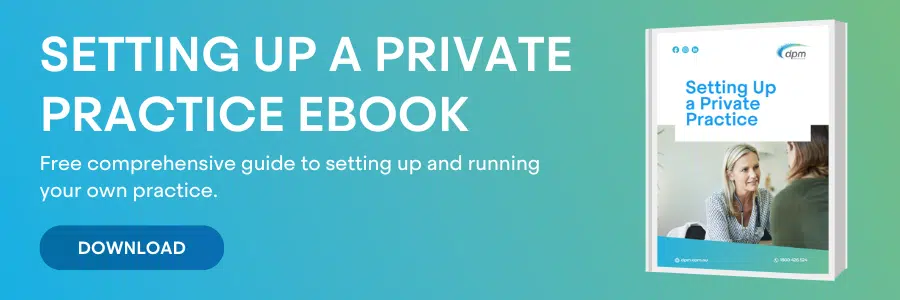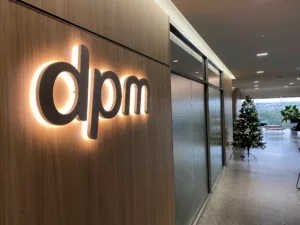The financial journey of a doctor is unique and complex. DPM Financial Services is a specialist medical financial advice firm that aims to educate doctors of Australia to make the right financial decisions and achieve their financial goals. DPM Financial Services is all about you getting the right advice that suits your personal and professional needs, and making sure that you have the confidence in your financial future.
Today I’d like to welcome to the PodMD studio, Dino Miliotis from DPM. Dino is a certified practicing accountant who joined DPM in 2009. He looks after clients at all stages of their career providing personalised tax, structuring and compliance advice as well as assisting with overall planning and wealth creation. We do hope you enjoy this podcast but please remember that the information discussed here is of a general nature and is not intended to serve as advice. The views and opinions expressed here in this podcast are those of DPM not PodMD. DPM Financial Services recommends that you obtain advice concerning specific matters before making a decision. Dino, thanks very much for talking with us today on PodMD.
Thank you for having me, Emilia.
Easy done. So the topic of today’s discussion is important things to consider when going into practice. Specifically, we’ll be talking about becoming an employer and the importance of having the right agreements in place. So Dino to start us off, can you explain the different ways of entering private practice to us?
Certainly, Emilia, I have to admit that probably the most common way that a lot of medical professionals will enter the private practice space, is through locum work or potentially getting into a private practice, that’s been established by someone else and they’ll be seeing patients and paying a service fee to a third party practice. But over time, we see clients engaging in a number of activities around private practice, either buying into a practice, taking over an established practice, or some of them, you know, who are particularly interested in doing their own thing, starting up their own practice from scratch.
Yeah, right. So what are the most important things to consider before you decide to make the move to private practice?
Well, I have to admit that there’s a few specialties that inherently have a natural progression towards private practice, particularly some of the surgical specialties. Just the way that they work, once the medical practitioners complete their training and become qualified consultants, the pathway, the career pathway will take them there into private practice. There’s a few things to consider before making the jump into private practice. One of the big things is, can you work independently? And can you work with limited support or build that support around you, because it is quite different to working, let’s say, in a hospital environment, as is the case with a lot of specialists, or working in someone else’s practice with established systems and processes, which might be the case for let’s say, a GP who’s looking to branch out and start their own practice. The other important aspect that practitioners need to think about is to weigh up the role that they have as a clinician versus a business owner. Moving into private practice, and being involved in private practice means that you’re wearing a different hat. So, if you are going to be seeing patients, of course, you still have that clinician role, but you’ll also be involved in running a business. So the question really, is are you prepared to be involved in the running of a business? Alternatively, if that’s not something that’s a strong suit, do you have someone who’s going to be able to assist you with this, for example, a practice manager or consultant who can you can assist in that regard? One of the big advantages of being involved in private practice is that it is quite rewarding. Unlike being an employee in the hospital or perhaps working in a practice that’s being run by someone else, you’ve got control of your work hours, over your pay, and of the systems and processes that you yourself can actually influence.
Absolutely. So there are obviously responsibility and obligations that come with becoming an employer. What are they?
Yeah, so here in Australia, there’s quite a few obligations that employer’s have. So having an employee comes with a lot of things that you have to do as an employer. The main thing that you’ve got to make sure that you’ve got down right is employment contracts, it’s important to formalise that employee/employer relationship, and it is a contractual relationship, so it’s really important that you do get proper employment agreements done. The other thing you really have to be across is all the employee entitlements are things like annual leave, sick leave, and long service leave. So depending on what sort of contract the employees have, they may be entitled to those things. So it’s important to have a system where you can actually keep track and manage those entitlements. The other big aspect of being an employer is around the tax side of things as an employer, you have to withhold tax for your employees on their behalf and pay that to the tax office that just adds to the compliance and the tax complexity, and that’s just something that you have to deal with as an employer. The other big one also is superannuation. So of course, if you are an employee, you are entitled to superannuation under the superannuation guarantees act. So at the moment, it’s 9.5% so it’s obviously something that you as an employer have to manage, and you have to manage well, because the government and the ATO, in particular, are quite stringent around superannuation. So it’s important that you are paying superannuation at the right rate, and also in a timely manner, to make sure that you’re compliant around that. A couple of other items that are not so much tax related, WorkCover insurance as an employer, you do need to provide your employees with appropriate WorkCover insurance and you’ve also got to have HR policies and procedures as well. So again, this is probably not something that medical practitioners are familiar necessarily with and it could be things that they do need some assistance with, from some external consultants.
Right, and are there systems or software’s that can help medical professionals with this?
Yes, certainly, software is something that can definitely help and technology in general. These days, I think most accountants are trying to move their clients away from the traditional shoe box, at least I’d hope so. And a lot of what the government is doing these days is also trying to reinforce and increase that push towards technology. One of the really major changes that has taken place over the last couple of years is single touch payroll or STP. So this is a reporting mechanism by which employers sending all the pay and tax and superannuation information to the tax office in real time. So the only way to really be able to manage this is through software. There are some exceptions for smaller employers at the moment, particularly those who are employing, let’s say, their spouses or family members. So from 1 July of 2019, all employers, including small employers, under 20, employees have to be STP compliant, and they typically have to use software to be able to manage that. So there’s a lot of software providers out there, there’s quite a variety, some of your listeners may have heard of names like MYOB, Xero, QuickBooks, or Reckon. If you’re unsure about which software is best for you, it’s best to have a chat with your accountant, and just weigh up the pros and cons of each of those, and I’m sure your accountants will be able to assist with setting up the software and all the systems and processes that need to go around that.
So Dino, is there a way that medical professionals can piggyback off their accountants? Or is it best that they just get their own software?
That’s a great question. Look, software these days is all cloud based. So when we talk about software, it’s not the thing that you install on your desktop or on your local system, it’s also cloud based and most of the major providers, that’s certainly how they work. If your accountant is using a particular software suite, on their end, it does make things a little bit easier if the software that you’re using for your practices purposes is with that same provider, but in saying that most software these days have functionality where you can export the information and there shouldn’t really be any issues. But really, if you are unsure or you’re not particularly leaning to one provider over another, it’s best to just check with your accountant and see what works best for them as well. But, also that will suit your needs and your requirements.
Okay, so in terms of software, is it time to get your own software or consult with your accountant when you get your first employee or is there another time that you should definitely be considering it?
Good question, Emilia. To be honest with you, there are benefits of having software, in certain circumstances, even if you don’t have any employees. These days, the way most software providers work is they’ve got bank feeds. So what you’re able to do with software is plug that into your practices bank account, and in real time be able to capture all the transactions that go through your bank account. The benefits of that is that you can actually produce your quarterly activity statements, your annual financial accounts much more easily, it means you’re not having to go off and try and find those bank statements during the year and receipts and invoices that you’ve had during the year, it can all be sort of captured in real time throughout the year. So that’s where software can really help in just making it more efficient to get on top of your tax compliance. The other great thing that software can assist with is things like budgeting. If you have software that has all the historical information, it’s very easy to produce reports, which can assist with budgeting and forecasting of cash flow and also just monitoring the performance of your business over the years.
The move to private practice is obviously a very exciting step, but it will obviously come with its own share of risk as well. So what are the legal protections that will be need to be considered?
Yeah, that’s a great question, Emilia. There is an inherent risk that comes with running a business. So irrespective of whether that’s in the medical space, or any other type of industry. So it’s really important to make sure you do take steps to protect that, I would like to point out that I’m not a legal practitioner so it is extremely important that as part of these conversations, you do actually seek legal advice. One of the major aspects of this is actually having an appropriate structure. Now in terms of what kind of structure you’ll have, that will really depend on the type of business, how the business is operating, the number of individuals involved in the business as well, it could involve trusts, it could involve companies, and it could be a number of agreements in place as well and that will just be a case by case basis. So as part of that, it’s really important that all agreements are formalised and that actually means that they’re all documented, and it’s important to create an audit trail. So we do like to talk about audit trails in the accounting space and that’s because we want to make sure that everything is documented and if the ATO knock on the door and ask the questions, were able to answer them. As part of this it’s also worthwhile making sure you have the right insurances in place. One of the insurances that’s quite relevant here is, for example, business insurance. So as part of this, you should really seek advice from an insurance adviser.
So you discussed at the start that one of the number one obligations that you have to be careful of is, is contracts, and there’s obviously a number of different contracts. So what are they? What are the contracts that should be in place?
Yeah, so the type of contracts will really depend on the arrangements that are in place as part of your private practice. So some examples include lease agreements, so they obviously always have to be documented, you may have associate agreements between the different practitioners that are going to be based in your practice, if you’ve got a service fee or a facility fee, work arrangement, then you’ll have service fee or facility fee agreements with all the practitioners that are going to be based at the clinic or at the practice. And of course, if you’re going to have employees, whether they be reception staff, nursing staff, you will of course, have employment agreements as well. So it’s important that all of these are documented that all the agreements are commercial as well. And I would like to stress that it’s important to engage a legal practitioner in order to actually draft all these contracts, and it’s certainly not a DIY job.
Okay, very good to know. What the consequences of not having the right agreements in place?
So it’s quite important to have the right agreements in place because they really set out all the different work arrangements that your practice has. Over the years, I’ve seen quite a few contracts and documents that have been a patchwork or DIY job, you know, there’s a quite a risk involved with doing things yourself. And, for example, relying on templates that you then adjust. One of the main issues is that the ATO does exercise quite a lot of scrutiny, particularly around leases, and, on service fee agreements, if the lease or the service fee agreement isnot commercial and not down to the format then the ATO may have an issue, and may, for example, deny deductions in the case of let’s say, service fees, or lease payments. So it really is important to have all of those done correctly bought by a qualified legal practitioner.
Right, that makes a lot of sense then. So, to sum up for today, could you give us three key take home messages, that is really outlining what you talked about here today, for medical professionals and moving them into private practice.
Yeah, I would say the top three take home messages would be having the right structure in place. So again, as I mentioned earlier, it’s a case by case basis. The second point is to seek the advice of an accountant and a legal practitioner. And ideally, both of those should be practitioners specialising in the medical space and have a great understanding of the industry on top of the agreements that need to be in place. And really, the third point would be to ensure that you are conforming with all of the requirements, so for example, you know what the ATO expects.
Okay, well, thank you very much for your time today and giving us good insight into what private practice really looks like.
Thank you very much, Emilia.










